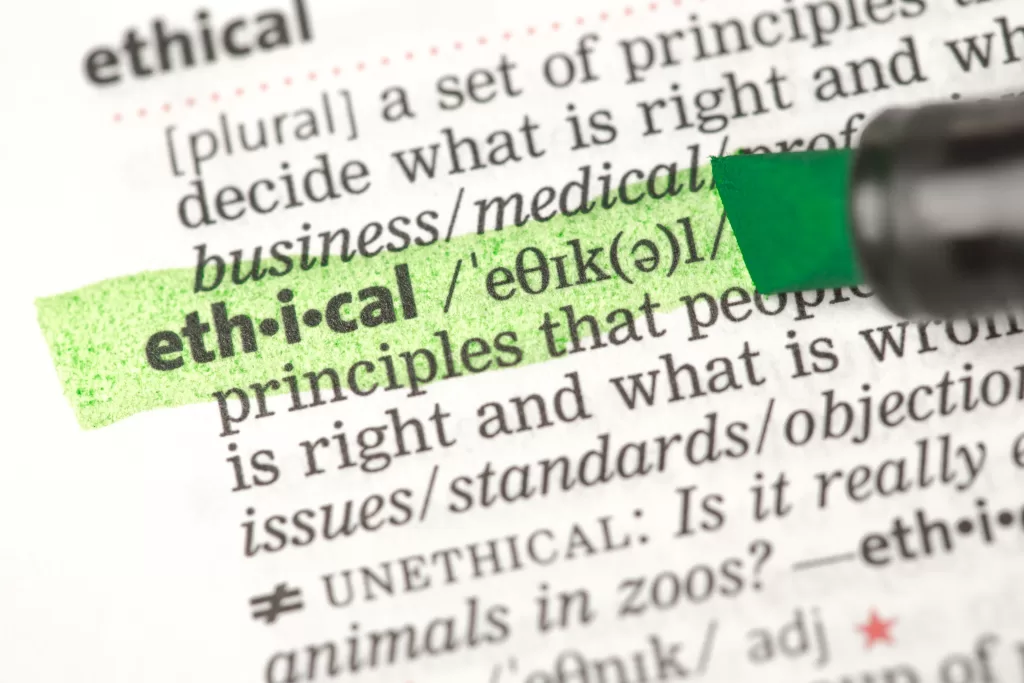Models for Ethical Decision Making
The world of business can be a complex and challenging environment, but it doesn’t have to be. By understanding the different models for ethical decision making, organizations can take steps to ensure their workplace is ethical and fair.
There are five common models of ethical decision making that organizations use: utilitarianism, virtue ethics, deontology, principlism and casuistry. Utilitarianism focuses on the ‘greatest good’ outcome – in other words, what will benefit the most people? Virtue ethics looks at how a situation might affect an individual’s character or integrity. Deontology emphasizes following obligations or duties that exist even if doing so does not lead to the best outcome for all parties involved. Principlism encourages applying universal principles or values when making a decision about a difficult issue. Finally, casuistry looks at each situation as unique and not patterned. Each of these models has the potential to be useful in some situations, but none are perfect solutions for all problems.

Definition
Ethical decision making is an important part of any job, whether it’s in the corporate world, public service or nonprofit sector. It refers to the process of evaluating and choosing among alternatives in a manner that is consistent with ethical principles. Put simply, ethical decision making requires a person who makes decisions to consider how their decisions will affect not just themselves, but others too.
When faced with an ethical dilemma, it is important for people to take a step back and think about the potential implications of their choices. This allows them to weigh up what is most important: doing what’s morally right or taking the easy road and possibly putting someone else at risk? Oftentimes it can be difficult to decide which course of action is best – but upholding morality should always be at the forefront of our minds when making decisions.
Utilitarian Theory
Utilitarian theory is an ethical decision-making method that focuses on the potential outcome of a particular action. It’s often used in business, politics and other fields to help individuals make decisions that are beneficial for all parties involved.
At its core, utilitarian theory promotes the idea that any decision should maximize positive outcomes while minimizing negative consequences. This means considering all possible outcomes and which would benefit the most people or cause the least amount of harm. The goal is to focus on overall utility rather than individual gain or pleasure.
Ulititarian theory can be a useful tool when making difficult ethical decisions, as it allows individuals to consider various options objectively and weigh them against each other based on their potential benefits to society.
Deontology
Deontological ethical decision making is a type of moral reasoning that has been around for centuries. It focuses on the idea of what is right or wrong, and whether an action taken can be judged as morally correct or incorrect. Deontological ethics, also known as ‘duty-based’ ethics, looks at an action as either being good or bad in itself, independent of its consequences.
The main focus of deontology is on individuals fulfilling their duties and obligations to society. This means that people should adhere to principles such as not lying, not stealing and not murdering regardless of the situation or outcome. When making decisions ethically it’s important to consider how these basic moral rules will affect other people and oneself. People who follow this type of ethical decision making pay attention to the intent behind each action taken instead of just looking at the outcomes it will have on others.
Principlism
Principlism is an ethical decision-making framework that helps individuals navigate difficult moral dilemmas. It was developed in the 1980s by three prominent American bioethicists—Tom Beauchamp, James Childress, and Dan Callahan—and it has since become one of the most widely used models for ethical decision making. At its core, principlism focuses on four fundamental principles: autonomy, non-maleficence (do no harm), beneficence (do good) and justice.
When faced with a difficult decision, principlism encourages individuals to consider all four of these principles before making their final judgement.
Virtue Ethics
Virtue ethics is a moral philosophy that focuses on character over actions. The core idea of virtue ethics is that people should strive to be good, and the way to do this is by developing virtuous characteristics such as honesty, courage, wisdom, and empathy. In essence, it encourages individuals to become better people—which in turn leads to good ethical decisions.
When making an ethical decision with virtue ethics in mind, it’s important to consider the individual’s character traits as well as the potential consequences of their action or inaction. For example, if you were considering whether or not to tell a lie in order to avoid getting into trouble with your boss at work—you would need to weigh up how this would affect your character traits like honesty and integrity versus how it might benefit you in the short term.
Casuistry
Casuistry is an ethical decision-making approach that has been around for centuries. It examines the consequences of a particular action by breaking it down into concrete elements and reviewing individual cases to consider specific moral dilemmas. In other words, it is a method of using reason to analyze and evaluate complex scenarios while considering all possible outcomes.
This approach can be used in many different areas, including business ethics and medical ethics. For example, in business casuistry might involve examining the potential benefits or drawbacks of expanding into new markets or introducing a new product line; while medical casuistry might include weighing the risks associated with certain treatments versus their potential benefit to patients. No matter what situation you’re dealing with, casuistry provides a structured way to think through decisions without relying on intuition or instinct alone.
Final Thoughts: Ethical Considerations
As the complexity of our world rises, ethical considerations come to the forefront of decision making. In many situations, it’s important to think through a variety of models for ethical decision making before taking action or coming to a conclusion.
By considering different frameworks such as utilitarianism and the rights approach, we can create an environment that promotes both individual autonomy and collective wellbeing. Utilitarianism focuses on creating maximum happiness or pleasure overall and minimizing suffering, while the rights approach emphasizes respecting individual rights and freedoms in order to protect autonomy.
It’s essential that we start thinking through these models as early as possible so that we can make decisions with integrity. Taking time to consider ethical implications will create a more just world where everyone is respected equally. When faced with conflicting interests, using ethical models for decision making helps us move forward with thoughtfulness and consideration for all involved parties.







One Comment
Pingback: